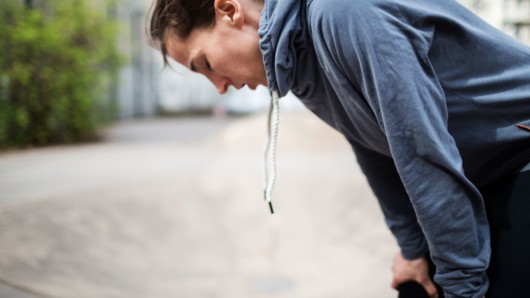A panic attack could occur at any given moment, and regardless of whether it’s expected or abrupt, it’s an unpleasant experience to have. A panic attack is characterized by an intense feeling of severe fear, anxiety, or discomfort. You may feel a great apprehension, even if there isn’t any real threat or danger in your surroundings.
When you’re in the midst of a panic attack, you may experience heart palpitations, shortness of breath, and a high heart rate. These symptoms could worsen if the attack is prolonged, causing uncontrollable shaking, sweating, pressure in the head, and a sense of suffocation.

If panic attacks are a common occurrence for you, you know how frightening these episodes are and how difficult it may be to recover from them. Thus, you should keep yourself informed on the various methods you could use to help you cope better.
Here are several ways to handle panic attacks so that you can find relief and easily get back on track afterward.
Seek Medical Help
Psychological treatment, medication, or a combination of both are commonly used to treat panic attacks. Whichever one of these methods you and your doctor decide on, be patient. Though results may not show right away, if you follow the treatment plan diligently, you could lessen the occurrences or effects of these episodes and prevent long-term problems from developing.
More often than not, therapy is usually the first method people think to try. If this is something you haven’t tried yet, you may want to see a professional regarding your condition. Counselors for anxiety are trained to diagnose and treat anxiety and panic issues, as well as train their patients to have healthier and more effective coping mechanisms. They will work with you to understand your condition and look for ways to help you cope.
Cognitive behavioral therapy (CBT), a type of psychotherapy that’s helpful in the treatment of anxiety disorders, is one of the most widely used methods. CBT is used to treat issues such as procrastination, insomnia, and relationship problems.
It also works well for treating depression, anxiety, addiction, and other mental health issues. With CBT, psychologists and counselors are able to assist their patients in learning to recognize and manage the variables that contribute to their anxiety.
Patients can have a better understanding of how their thinking affects their anxiety and, consequently, their panic attacks. This will allow them to take measures to lessen the likelihood of the attacks and the degree of their symptoms as they learn to adjust their thought patterns.
When Should You Visit a Doctor for Your Panic Attacks?
- You’re concerned about your anxiety and the panic attacks you experience.
- You’ve been having panic attacks more often, and it doesn’t seem to be lessening after a month or more.
- You notice that your behavior has changed after an attack.
- Your anxiety is interfering with your career, studies, or everyday activities.
- You’re having sleep problems because of it.
Practice Deep Breathing
During a panic attack, you may start breathing faster and experiencing chest discomfort, which causes shallow breathing. This breathing pattern, in turn, could intensify anxiety and stress.
To prevent this, when you feel a panic attack coming on, drop what you’re doing and try to focus on taking deep, steady breaths. Inhale deeply from your abdomen to slowly fill your lungs, and exhale slowly. To ensure that you’re taking your time, count out four seconds when inhaling and when exhaling.

If that method of breathing isn’t effective for you, you could also try 4-7-8 breathing. This technique involves inhaling for four seconds, holding that breath for seven seconds, and then exhaling slowly for eight seconds.
Though this method has been known to help people, there are some cases wherein it may worsen a person’s anxiety. If you find that deep breathing does not work for you, don’t try to force it; instead, opt for other methods that may be better for you.
Shift Your Focus
During a panic attack, many thoughts could be filling your mind at an overwhelming rate, most of which may be negative, such as thoughts of a disaster or of death. Though it may be difficult to do, you should try to shake those thoughts off to prevent your anxiety from getting worse.
Instead, focus on something else. It could be something minor, such as a flower on the ground or a photograph in the room, or it could be something that intrigues or comforts you, like your favorite childhood cartoon or a good day you had recently.
You could also try creative visualization. Picture a setting or an environment where you feel relaxed and comfortable. Focusing on that image could distract you from the panic you’re feeling and help you calm down.
Know the Signs
Though some panic attacks could be caused by external factors, such as a tense situation, they can also occur at the most unexpected moments. You could be out on a hike, eating at a restaurant, or relaxing in bed, and you’ll suddenly be hit with a strong sense of apprehension.
This can result in physical symptoms such as a rapid heartbeat, dizziness, shortness of breath, excessive sweating, chest pains, nausea, or uncontrollable shaking, among other things. This can last anywhere between 5 and 20 minutes.
However, these symptoms don’t set in immediately. You may notice that, more often than not, panic attacks start with minor symptoms that gradually increase in intensity. If you learn to identify these symptoms, then you can detect an attack in its earlier stages and do what you can to prevent it from going any further.
Talk to Someone
If you’re struggling with anxiety and constant panic attacks, talking to friends, relatives, a healthcare practitioner, or a certified counselor is highly encouraged. Given that anxiety is often triggered by worries or frightening thoughts, suffering in silence would only worsen the condition, as you allow these thoughts to fester in your mind.
Don’t make the mistake of isolating yourself when worries or anxieties bubble up. Meet with friends on a regular basis, spend time with your family, or talk to a loved one you can trust. If you feel that you have no one to turn to, joining a support group could help. These people will be able to relate to your situation, and you can learn to offer the same support you receive from them as well.

Seeking assistance from other people can help you feel more empowered and less vulnerable. Not only will they be able to help assure you and dispel negative thoughts, but they also help remind you that you aren’t alone in your struggle.
Be Patient
It will take some time before you see any improvement, whether it’s in the severity of your panic attacks or in how frequently they happen. It may take a few months before you can feel a significant improvement, and some people might only notice the progress they’ve made after a year of therapy.
If you feel that you’re not making progress, don’t allow this to discourage you. Be patient with yourself and trust that the treatment plan advised for you will pay off in the long run.
It would help for you to talk to friends or loved ones witnessing your journey, as they can point out any positive changes you might not be noticing. You could also talk to your therapist; if you truly believe that the treatment isn’t helping, you could work with them to find another method that might be better for you.
Have a Healthy Lifestyle
Making positive choices can also help you support your own therapy efforts. Anxiety could be influenced by a variety of factors, ranging from your level of physical activity to your social life. Make a decision to implement relaxation, liveliness, and a positive mental attitude in your daily routine to set yourself up for long-term success.
Here are three helpful tips that could help you reduce your anxiety and stress, and thus lower the chances of panic attacks occurring.
Be Physically Active
In addition to keeping you busy and keeping your mind off negative thoughts, exercise and physical activities have proven to be effective in improving mental health.
If you’re unable to exercise every day or if you can’t do intense physical activities, you can opt to do low-intensity exercises twice a week or even just take a walk around your neighborhood when you have the time. Even the most minor physical activities are better than none at all.
Avoid Alcohol
Some people may turn to alcohol to cope with their situation, but this could actually worsen anxiety instead of reducing it. Even if you drink it in moderation, the temptation to drink more is still there, so it would be best to avoid it completely.
Similarly, you should opt to avoid stimulants such as caffeine and nicotine as well, since these can also be bad for anxiety.
Manage Stress
Try to avoid letting stress pile up, and develop techniques to handle it better. If you have too much on your plate in terms of obligations, for example, break down what you need to do into small manageable tasks and don’t commit to more than you can handle.
You know best what situations or people may cause you a lot of stress, so you should come up with ways to avoid them or handle them better. In addition, you should also include a time for relaxation in your daily routine or have one day in the week where you have no obligations.
Conclusion
Panic attacks are incredibly unpleasant experiences. Despite the fact that they leave you physically unharmed, they can have a negative impact on your mental health and prevent you from doing activities you enjoy.
Instead of hiding it from other people and trying to handle it on your own, you should be doing the opposite. Inform your healthcare practitioner that you suffer from panic attacks, and let your loved ones know as well.
It’s important to have people willing to help you as you try different methods to cope with your attacks, be it the tips mentioned in this article or others suggested by a professional.



